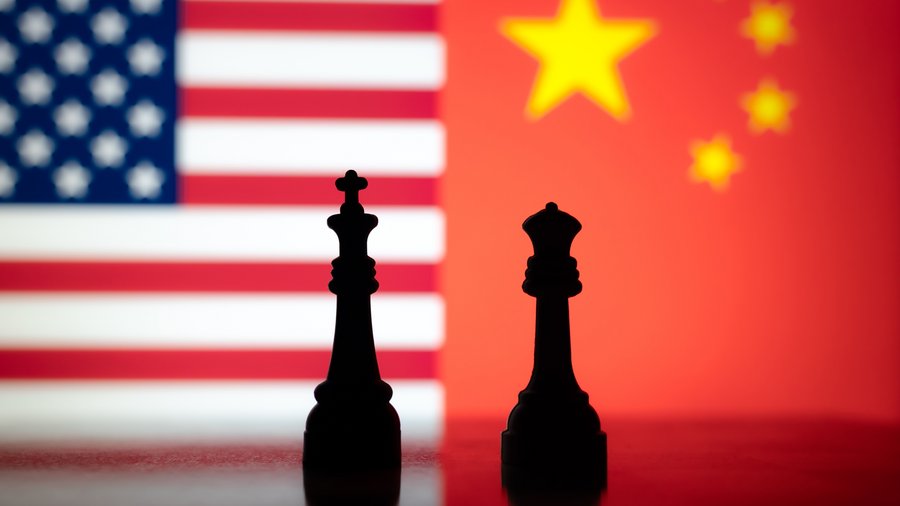Salzburg Global Fellow Jovanie Camacho Espesor explains why the U.S. should "align domestic politics with global ambitions" in its contest with China in the Indo-Pacific
This article was written by Salzburg Global Fellow Jovanie Camacho Espesor, who attended the Salzburg Global American Studies session on “Crossing the Pacific: The Asian American Experience in U.S. Society and Discourse” in September 2024.
In an age when American politics is defined by division, one subject manages to unite Democrats and Republicans: China. Across the political aisle, there is a shared conviction that Beijing represents the United States’ foremost strategic competitor - a challenge that spans military power, economic influence, and the rules of the global order itself.
This rare consensus stands out. Since World War II, the United States has cast itself as the defender of liberal democracy, using its political, military, and economic dominance to promote stability and global security. In the Cold War, Washington confronted the spread of communism; after 9/11, it pivoted toward countering terrorism. Today, the focus is on containing China’s ascent.
Beijing’s ambitions are no secret. It has built the political, economic, and military capacity to rival Washington. Its “ten-dash line” claim in the South China Sea — in defiance of the UN Convention on the Law of the Sea — challenges not only U.S. influence but the very principle of a rules-based international order. Its growing military power reinforces that challenge: In 2023, China’s defense budget reached $224.79 billion, second only to the United States. This rapid buildup, coupled with increasingly assertive actions, signals a willingness to test the balance of power in Asia and beyond.
The U.S. response has been robust. Joint exercises like RIMPAC 2024 showcase American military capability and solidarity with allies, particularly in the Indo-Pacific. Washington is also investing heavily in industrial, scientific, and defense capacities to maintain its edge.
Yet the rivalry extends far beyond military posturing. Economically, both powers are competing to set the rules of trade and technology in the 21st century. Here, however, bipartisan unity is more fragile. Despite warnings that China may rewrite the region’s trade rules, neither party has shown enthusiasm for rejoining the Trans-Pacific Partnership - a move that would strengthen U.S. economic leadership in Asia. Domestic political sensitivities, especially regarding American jobs, have outweighed strategic imperatives.
This is where the U.S.-China rivalry becomes more than a foreign policy question - it is a test of America’s political will at home. A 2023 Pew Research Center survey found that half of Americans see China as the greatest threat to the United States. This shared perception has created a rare window for bipartisan action. But translating consensus into strategy requires more than a common enemy. It demands sustained commitment, policy coherence, and the political courage to make choices that may be unpopular in the short term but essential in the long run.
The stakes could not be higher. If the United States fails to align its domestic politics with its global ambitions, it risks ceding leadership not through defeat in war or diplomacy, but through internal drift. In a competition where time, resources, and public resolve matter, political unity is a strategic asset - but only if it is harnessed effectively.
China is playing a long game. The question for the United States is whether it can do the same.
Jovanie Camacho Espesor is a political anthropologist and international relations scholar at the Mindanao State University, General Santos, Philippines. In 2019, he received his degree Doctor of Philosophy in Political Science from the Department of Political Science and International Relations, University of Canterbury in Christchurch, New Zealand. Jovanie is an executive board member of the Research Committee on Conflict, Security and Democratization and Research Committee on Climate Security and Planetary Politics of the International Political Science Association. He is also a research fellow of the Centre for Middle East and Global Peace Studies of the National Islamic University of Indonesia, and visiting researcher at the Universitas Syiah Kuala, in Aceh, Indonesia, Waseda University in Tokyo, Japan and Georgetown Institute of Women, Peace and Security in Washington DC.
Explore our digital publication, which includes more coverage from the Salzburg Global American Studies session on “Crossing the Pacific: The Asian American Experience in U.S. Society and Discourse”.


